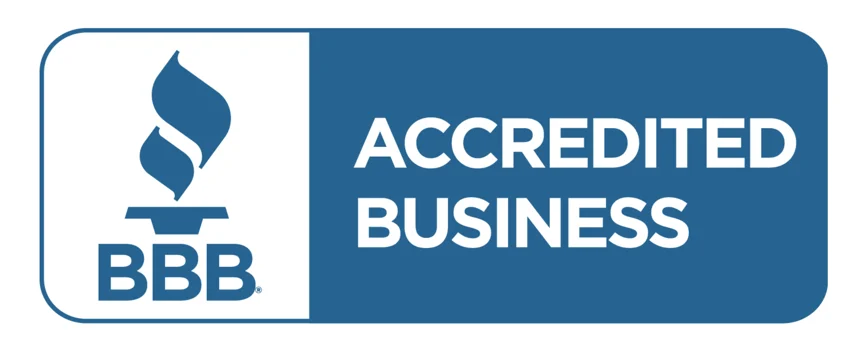Inherited a House? Don’t Miss These Smart Next Steps
Mar 28, 2025 | Hanna Cena
Inherited a House? Here’s What You Can Do With It
Inheriting a house can bring up a mix of emotions—grief, confusion, maybe even stress. While it’s a generous gift, it also comes with big decisions. One of the most common questions is: What should I do with this inherited house?
Whether the property needs repairs, is located far away, or you’re unsure how to handle it with other family members, don’t worry. You’re not alone—and you do have options. In this guide, we’ll walk you through everything you need to know in simple terms, so you can make the right choice for your situation.
1. What Does It Mean to Inherit a House?
Before we talk about what to do, let’s break down what it actually means to inherit a house.
When someone passes away and leaves their home to you—either through a will, a trust, or as part of their estate—that’s called inheriting a house. This can happen if you’re a child, spouse, sibling, or other relative of the deceased.
Sometimes you’ll inherit a house by yourself, and sometimes you’ll share it with other family members (called co-heirs). The property may come with a mortgage, property taxes, or even back bills attached to it.
In many cases, this all happens through a legal process called probate. If you want to understand probate in more detail, we recommend this helpful guide from Nolo.
2. What Are Your Options After Inheriting a House?
Once the house is officially yours, you have three main options:
✅ 1. Move Into the Home
If you’re interested in living there yourself, you can choose to make it your primary residence. This may be a good choice if the house is paid off or in good condition.
✅ 2. Rent It Out
Some people choose to turn the home into a rental property. This could bring in monthly income—but you’ll need to be ready to manage tenants, repairs, and maintenance.
✅ 3. Sell the Property
Many people decide that selling the house is the best option—especially if they already have a home or live out of state. Selling lets you avoid ongoing costs and move forward.
Not sure which route to take? Start by asking:
- Do I want to live in the home?
- Can I afford the maintenance, taxes, and insurance?
- Do I want to manage renters?
- Is this house creating stress or peace?
Your answers will help guide your decision.
3. Check These Things Before Making a Final Decision
Before you take action, there are a few important steps to check off:
🔍 Is the Mortgage Paid Off?
Some inherited houses are owned free and clear. Others still have a mortgage—or worse, are behind on payments. You’ll want to contact the mortgage company to understand what’s owed.
🧾 Has Probate Been Completed?
If the home is still in probate, you may not be able to sell it yet. You’ll need to wait until the court officially transfers ownership to you. If it was held in a living trust, probate may not be needed.
👨👩👧 Are There Multiple Heirs?
If you’re not the only person who inherited the home, you’ll need to agree with co-heirs about what to do. You can either:
- Buy out the others
- Sell and divide the profits
- Co-own the house together (not always ideal)
🧾 Are There Any Outstanding Bills?
Check for unpaid property taxes, liens, or utility bills. These need to be settled before or during a sale.
4. How to Sell an Inherited House in Michigan
Selling is a popular choice—especially when the house is too far away, needs major work, or feels like more responsibility than you’re ready to take on.
Here’s how to sell an inherited house step by step:
Step 1: Transfer Ownership
If the house is still in the deceased person’s name, work with a probate attorney to legally transfer it to yourself or the rightful heirs.
Step 2: Talk to Co-Heirs (if applicable)
If others are involved, meet to discuss what to do with the home. Agree to sell, split profits, or transfer it to one person.
Step 3: Decide How You Want to Sell
You can:
- List with a realtor (takes time, may need repairs and updates)
- Sell it yourself (FSBO) (you handle all paperwork, marketing, etc.)
- Sell to a cash home buyer (fast, no repairs, no fees)
If the home is outdated, has damage, or you’re on a tight timeline, selling to a cash buyer can be the simplest way.
5. Can I Sell an Inherited House As-Is?
Yes, and many people do.
Selling a house as-is means you don’t fix it up, clean it out, or update anything before the sale. This is especially helpful if:
- The house has old plumbing, roofing, or electrical work
- It’s been sitting empty for months or years
- There’s too much stuff left behind
- You live in another city or state
A cash buyer or real estate investor will buy the home in its current condition—saving you the time, money, and stress of preparing it for the market.
For more about this, check out HomeLight’s guide to selling as-is.
6. Why Many Sellers Choose a Quick Sale
Selling an inherited house fast isn’t just about convenience—it’s about peace of mind. Here are common reasons people choose to sell quickly:
✅ They Don’t Live Nearby
Managing a property from far away can be costly and exhausting.
✅ The Home Needs Too Many Repairs
If the house is outdated, damaged, or cluttered, prepping it for a traditional sale may feel impossible.
✅ They’re Paying Out-of-Pocket
You might already be covering utilities, taxes, or mortgage payments you didn’t plan for.
✅ They Want to Avoid Family Conflict
Selling fast with a clean split can help avoid arguments among heirs.
✅ They Just Want to Move On
For many, letting go of the property helps with emotional closure after losing a loved one.
7. Tips to Make the Process Easier
Dealing with an inherited home doesn’t have to be overwhelming. Here are some ways to reduce stress:
- ✅ Gather all paperwork early (will, death certificate, mortgage details)
- ✅ Stay in communication with co-heirs
- ✅ Work with professionals you trust
- ✅ Don’t rush—take the time you need to feel ready
- ✅ Explore selling options without pressure
You’ve got this—and there are people who can help.
8. Inherited House in West Michigan? We’re Here to Help
If you’ve inherited a house in Kent, Ottawa, or Ionia County, or nearby towns like Grand Rapids, Wyoming, Holland, Jenison, Belding, or Rockford, Hometown Development is ready to help you through the process.
We buy inherited houses in any condition—no cleaning, no repairs, no long wait. Whether the home is in probate, occupied, or completely empty, we can give you a fair, no-pressure cash offer and close when you’re ready.
👉 Get a free cash offer here
Or call us directly to talk through your situation with someone local.
Final Thoughts: You Have Options With an Inherited Home
An inherited house may feel like a burden, a blessing, or something in between. No matter where you are emotionally or financially, just know this: you are allowed to move forward in a way that’s best for you.
Whether you keep the home, rent it, or sell it, there’s no “right” answer—just the one that works for your life.
If selling feels like the best step, there are people right here in Michigan ready to support you.







